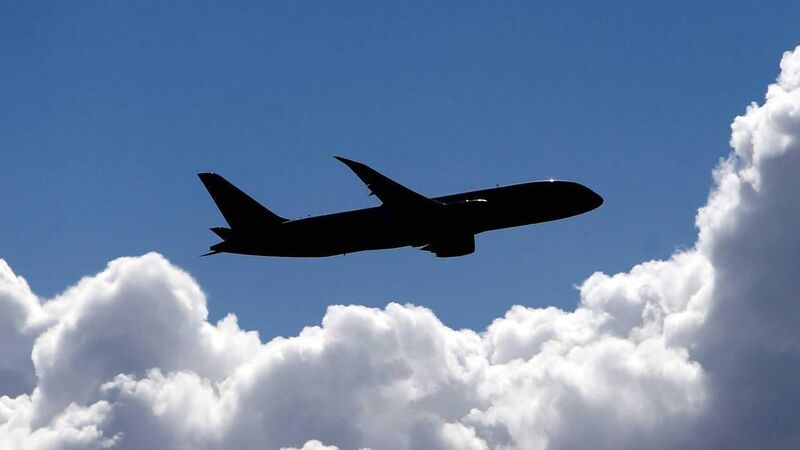Could bad behaviour spell the end for the pre-flight tipple?

The thing is though, the airline industry is getting fed up with having to deal with the shenanigans of an admittedly small minority of passengers who are intoxicated, drugged up, or both.
As if air travel is not exhausting enough, with the early arrivals, the long, hot, crowded queues at security gates in big, busy, international airports, the scans, the checks, the rules about the removal of belts and shoes, the rules about tiny containers of toiletries, the rules about the dimensions of carry-on luggage.
Can you imagine the length of the queue if alcohol and drug checks became part of the boarding routine?
Airlines and airports make a lot of profit from selling alcohol – in the airport terminal bars, duty-free shops and from the onboard trolleys.
The thing is though, the airline industry is getting fed up with having to deal with the shenanigans of an admittedly small minority of passengers who are intoxicated, drugged up, or both.
Ryanair recently announced that passengers who must be “offloaded” from their aircraft for disruptive or abusive behaviour, will now be fined €500.
The Irish Aviation Authority’s figures show an 80% increase in incidents of bad behaviour by passengers at Dublin Airport in the first five months of this year compared to the whole of 2024.
Drink and drugs are all too often at the root of it. Gardaí say many passengers who cause the most trouble on board have taken drugs (often cocaine), alcohol or prescription medication or some combination of all of these.
So it’s not beyond the bounds of possibility that as a result, we may eventually see the introduction of alcohol and drug checks at airline security gates.
(It’s actually illegal to be intoxicated on a plane, by the way.) We may also eventually, God between us and all harm, see the end of the airport bar and traditional in-flight trolley sales of alcohol.
Bizarre as it may sound at this juncture, down the road, a cold-eyed analysis of the cost-benefit ratio of selling alcohol in airports and on board aircraft could conclude that it’s just not worth it.
The financial profits from selling drink could potentially be perceived to be offlaid by the expense of handling, say, a barrage of lengthy and costly HR problems arising from, for example, physical attacks on staff by intoxicated passengers, verbal abuse of staff, claims of sexual assault, stressed-out staff, damage to the interior of the plane and threats being made to other fliers.
Then there’s the cost and inconvenience of having to remove disorderly passengers from aircraft or even reroute planes to offload aggressive individuals into police custody.
You know the way the cabin crew stands at the door of the aircraft to warmly welcome you into the aircraft as you struggle up the steps or walk across the jet-bridge?
It’s not just about being nice.
It’s also about assessing who might prove to be a problem post take-off because disorderly passenger behaviour is now a very real issue.
Might we eventually be expected to arrive at the airport not two or three hours before a flight, but five or six hours or more, to allow for official drug/alcohol checks?
Last February, a plane from Cork was met by police at an airport in the Canaries after the crew alerted them about a disruptive passenger. The passenger was removed from the plane and the matter was handed over to the local police.
I was interested to read a comment by Michael O’Leary about the way things have changed.
As a result, they’re, eh, more energised and more aggressive.
He has also been quoted as saying that Ryanair has to deal with assault cases on a weekly basis.
Ryanair operates about 3,500 flights which daily criss-cross Europe carrying some 630,000 passengers. It says that on average staff are forced to deal with a seriously disruptive passenger on about three of every 1,000 flights.
That’s quite a lot to be honest, given that behaviour classed as “seriously disruptive” in the cramped, confined, claustrophobic space that constitutes the average economy class airplane, must be terrifying to witness, let alone deal with.
Again, it must be emphasised that it’s a very small minority of passengers who verbally abuse airline staff, ignore instructions, spit at or assault cabin crew and insult, threaten or even fight with fellow passengers.
But these Hooray Henrys and Henriettas are having an impact on the airline industry which may, in the end, make life that much more difficult for the rest of us.
On the bright side, though, a ban on alcohol sales in airports or on board will bring some benefits.
Including one minor silver lining.
Aircraft toilets, as we are all aware, are unisex and there are never enough of them.
Having to use such a facility after a big, drunk, careless, staggery male has relieved his groaning bladder of many pints of beer, can, believe me, be an experience that is best forgotten.
And maybe, if all this comes to pass, it will be.







 App?
App?







